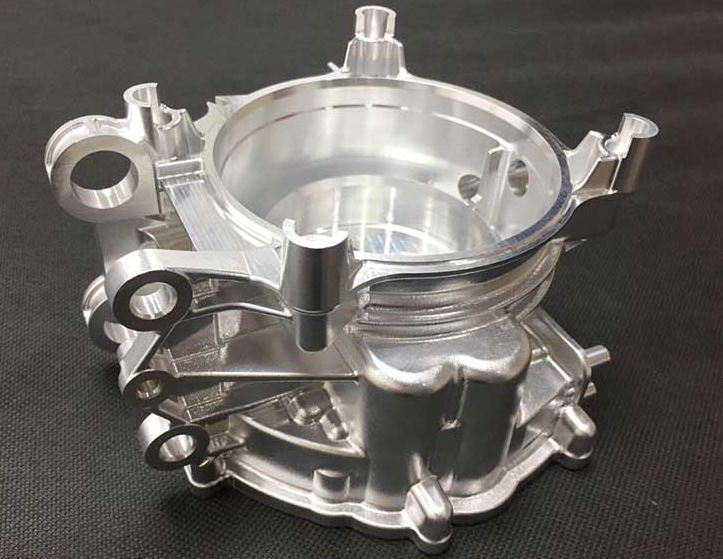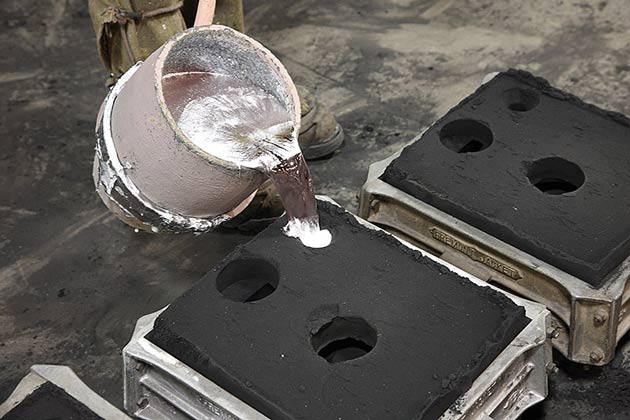Some Known Questions About Stahl Specialty Company.
Some Known Questions About Stahl Specialty Company.
Blog Article
6 Simple Techniques For Stahl Specialty Company
Table of ContentsThe Only Guide to Stahl Specialty Company3 Simple Techniques For Stahl Specialty CompanyStahl Specialty Company for DummiesFacts About Stahl Specialty Company RevealedStahl Specialty Company Things To Know Before You BuyLittle Known Facts About Stahl Specialty Company.

If you're designing a metal product, you have actually likely taken into consideration utilizing aluminum as the base material. Pure light weight aluminum has limited applications, so it is frequently incorporated with various other components, such as silicon, magnesium, and manganese to create alloys.
Different aspects and quantities create a broad variety of preferable physical and chemical buildings. And the Aluminum Association (AA), based in The United States and copyright, has actually created requirements that control light weight aluminum alloys' structure, residential properties, and nomenclature. There are 2 kinds of aluminum alloys wrought and cast. Foundry employees form these alloy kinds in different methods, which considerably impacts their features.
Stahl Specialty Company Fundamentals Explained
Cast light weight aluminum alloys are made by thawing pure aluminum and combining it with various other metals while in liquid type. Then the mix is put into a sand, pass away, or financial investment mold. After solidification, the steel is gotten rid of from its mold. At this stage, it remains in either its final kind or as a billet or ingot for more handling.

For instance, 160.0 represents a cast with a minimum of 99.60% light weight aluminum. The fourth figure, which comes after the decimal point, specifies if the alloy is a casting (xxx. 0) or an ingot (xxx. 1). Wrought aluminum alloys likewise begin by incorporating liquified aluminum with various other steels. Unlike cast alloys, nonetheless, they are developed into their last shape via procedures such as extrusion, rolling, and flexing after the steel has actually solidified right into billets or ingots.
There are many small distinctions between functioned and cast light weight aluminum alloys, such as that cast alloys can contain extra substantial quantities of other steels than wrought alloys. The most noteworthy difference between these alloys is the manufacture procedure via which they will certainly go to deliver the last product. Apart from some surface treatments, cast alloys will leave their mold and mildew in practically the specific strong type desired, whereas wrought alloys will go through numerous modifications while in their solid state.
If you think that a functioned alloy might be the very best for your task, take an appearance at several of our write-ups that clarify more concerning specific functioned alloys, such as Alloy 6061 and Alloy 6063. On the other hand, if you assume an actors alloy would certainly be much better for you, you can discover more regarding some cast alloys in our Alloy 380 and Alloy 383 write-ups (coming soon).
What Does Stahl Specialty Company Mean?
When selecting a light weight aluminum factory for your manufacturing demands, it's crucial to study several aspects. One of one of the most important facets to think about is the experience and capability of the factory. Casting Foundry. Selecting a shop that has the ideal expertise of the light weight aluminum spreading procedure, and the portfolio to show for it, helps to have an effective result for your task
Having the experience and industry understanding to engineer your castings for ideal manufacturing and top quality outcomes will certainly improve the project. Producing light weight aluminum spreading requires a complicated collection of processes to accomplish the appropriate outcomes. When selecting a brand-new light weight aluminum factory to partner with, ensure they have extensive industry experience and are well-informed concerning all facets of the aluminum casting process: layout, manufacturing, material analysis, and product testing.
The foundry needs to also have a tried and tested record of supplying exceptional products that satisfy or go beyond consumer assumptions. Quality control must additionally be at the top of your checklist when picking a light weight aluminum foundry. By collaborating with a certified shop who complies with the criteria for quality assurance, you can protect the stability of your item and ensure it fulfills your requirements.
By selecting a company who provides solutions that fulfill or surpass your item demands, you can be certain that your task will certainly be finished with the utmost precision and effectiveness. Specific aluminum factories focus on particular sorts of producing processes or casting methods. Different parts require various manufacturing techniques to cast aluminum, such as sand casting or pass away spreading.
The 6-Minute Rule for Stahl Specialty Company
Pass away casting is the name given to the process of developing intricate steel components through use of molds of the element, likewise known as dies. It produces even more components than any type of other procedure, with a high level of precision and repeatability. There are three sub-processes that fall under the category of die spreading: gravity pass away spreading (or long-term mold and mildew spreading), low-pressure die casting and high-pressure die casting.
After the purity of the alloy is checked, passes away are developed. To prepare the dies for casting, it is essential that the passes away are clean, so that no deposit from previous manufacturings continue to be.
The Best Strategy To Use For Stahl Specialty Company
The pure steel, also understood as ingot, is included to the heating system and maintained the molten temperature level of the metal, which is then transferred to the injection chamber and infused right into the die. The stress is then maintained as the metal strengthens. When the steel solidifies, the cooling process begins.
(https://www.huntingnet.com/forum/members/stahlspecialc.html)
The thicker the wall of the component, the longer the cooling time because of the amount of interior metal that likewise needs to cool. After the component is totally cooled, the die halves open and an ejection system pushes the part out. Complying with the ejection, the die is shut for the next shot cycle.
The flash is the added product that is cast throughout the process. This should be trimmed off using a trim tool to leave simply the major component. Deburring eliminates the smaller sized items, called burrs, after the trimming process. Lastly, the component is polished, or burnished, to give it a smooth finish.
The Stahl Specialty Company Diaries

Zinc is one of the most used alloys for die why not find out more spreading due to its reduced cost of raw materials. Its deterioration resistance also enables the elements to be lengthy lasting, and it is one of the extra castable alloys due to its reduced melting point.
As pointed out, this alloy is just one of one of the most typically utilized, yet produces will, sometimes, pick light weight aluminum over zinc because of aluminum's manufacturing advantages. Aluminum is extremely economical and one of the much more flexible alloys. Light weight aluminum is utilized for a variety of different items and industries anything from home window structures to aerospace materials.
Report this page